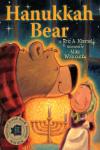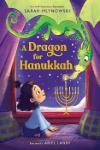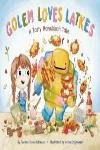On the Boundaries of Flexibility: Thoughts on “Shadows We Carry” by Meryl Ain

Buy this book at Amazon or for Kindle or at Bookshop
Reading a fine and grand family saga is its own reward. The pleasure one gets, or at least I got, from following the life of a family for about fifteen years–from the late 1960s to 1983–through a chosen protagonist’s lens, reminded me that one rarely gets this kind of treat. Just like the pace of movie editing sped up–and those who grew up on fast-paced Netflix movies often cannot even slow down to enjoy a good old-fashioned, slow-paced film noir–contemporary fiction is often more about action and excitement than building a larger scale time or plot frame. Not here: the shadows and joys, virtues and failings are getting carried for decades and transferred to generations.
I managed to balance my desire to read through “Shadows we carry” as fast as I can–because it was engaging, emotionally captivating, and educational – and the desire to prolong something this good so it would last longer. In the end, I read it in three days. On the evenings of one of those days, I saw “Fiddler on the Roof” on stage – the first time for me, having seen the movie plenty of times. This coincidence triggered the realization that they both convey a message about the boundaries of flexibility. They both explore the reasons why somebody clings to tradition or under what circumstances becomes lenient about it.
The answers are similar, even if the situations are not. Both pieces of the literature suggest that fathers are willing to bend the rules or look the other way if it helps to ensure the happiness of their daughters. But the lines they cannot step over involve the (real or perceived) enemies of the tribe. You may or may not agree with this assessment, but I think the only question is where would you draw the line. How strong tradition lives in you and what part of Judaism is core to your core values is answered by where you are on the spectrum of tradition. This book will help you to explore your own values, and why you ponder which characters you sympathize with and why.
There are people who read encyclopedias for fun. I am not one of them. I made the mistake of trying to read and memorize all the characters and their backstories on the first few pages of the book. I failed miserably at this unnecessary effort. I recommend instead, using this excellent resource as one would do with a regular encyclopedia. If, while you read the book, you need a reminder of who is who, just jump back. Better yet, read the first volume of this series, The Takeaway Men, and get familiar with the characters the proper way.
I am always happy to learn about history, although if I read something in a novel I prefer double-checking it. I can confirm that the two examples below, which were new information for me, are legit. So do the national political events about McCarthy and Nixon and others. Even if the characters and their personal stories are fictional the historical backgrounds are accurate.
- The “Office of Special Investigations (OSI), whose purpose was to investigate and prosecute cases against Nazi offenders” (p241) was real and “opened hundreds of investigations and initiated proceedings of Nazi war criminals. These investigations lead to the denaturalization and/or removal of more than 100 Nazi offenders from the United States.” (source: Holocaust Encyclopedia)
- This event happened and there were 20,000 people there: “The American Gathering of Jewish Holocaust Survivors took place in Washington, DC, in April 1983.” (p250)
I cannot think of higher praise for a book whose protagonists come across as fully human. They, starting with Bronka, are not just relatable and likable, but also fallible, showing the full scale of the human experience. One of her “vices” is her relentless naivety, which only time heals. Her character develops at a glacial pace, but always in the correct direction. We care for her and want to open her eyes so she could avoid frustration and disappointment. But only she can do it.
Here are some of my favorite short quotes from the books. I think they are fascinating enough on their own so you would want to know the context these words were uttered in:
- We’re Americans, Bronka! We don’t have to be concerned with our lineage. (p33)
- You don’t just marry the man, you marry his grandfather’s chair. (p51)
- A flea has more self-esteem than you do. (p78)
- Who needs technical Jews? We need living, breathing, practicing Jews. (p209)
The many topics of this book–religion, denominational differences, assimilation, local, national, and world politics, marital fidelity, gay visibility, and rights, hiding nazis….– are masterfully weaved into a coherent whole; in and out of the story of a person, a family, and a generation. You can grasp the whole in a drop and vice versa and I recommend doing so for the holistic experience.
Publisher’s description:
In this eagerly anticipated sequel to Meryl Ain’s award-winning post-Holocaust novel The Takeaway Men, we follow Bronka and JoJo Lubinski as they find themselves on the cusp of momentous change for women in the late 1960s. With the United States in the grip of political and social upheaval, the twins and a number of their peers, including a Catholic priest and the son of a Nazi, struggle with their family’s ancestry and how much influence it has on their lives. Meanwhile, both young women seek to define their roles as women, and as individuals.
Enlightening and evocative, Shadows We Carry explores the experience of navigating deeply held family secrets and bloodlines, confusing religious identities, and the scars of World War II in the wake of revolutionary societal changes.
The book’s page on the author’s website and on the publisher’s website.
Meryl Ain, the author on Facebook, Instagram, LinkedIn, and Twitter.
Disclaimer: I have received a digital copy of this book and a small amount from the author which did not affect my review in any way.
Year first published: 2023














